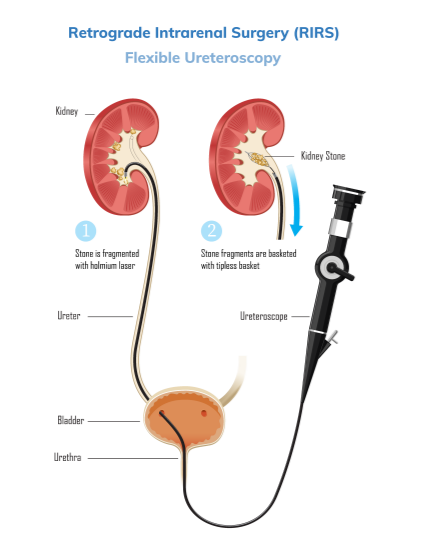Retrograde Intra-Renal Surgery (RIRS) is a minimally invasive surgical procedure performed to treat kidney stones or other conditions within the kidney. It is also known as Retrograde Intrarenal Surgery.
In RIRS, a thin flexible tube called a ureteroscope is inserted through the urethra and passed through the bladder and up into the ureter until it reaches the kidney. The ureteroscope has a camera and surgical instruments attached to it, allowing the surgeon to visualize the inside of the kidney and perform various procedures.
Once the ureteroscope is in place, the surgeon can use laser energy or other specialized instruments to break up or remove the kidney stones or perform other necessary treatments. The fragmented stones can then be extracted or allowed to pass out naturally through urine.
RIRS is a preferred option for patients with smaller kidney stones or those located in hard-to-reach areas within the kidney. It offers several advantages over traditional open surgery, including reduced risk, shorter recovery time, and minimal scarring.
It is important to note that the specific details of the procedure can vary depending on the individual case and the surgeon’s approach. The decision to perform RIRS is made after a thorough evaluation of the patient’s condition and imaging studies, and it is typically performed under general anesthesia.

